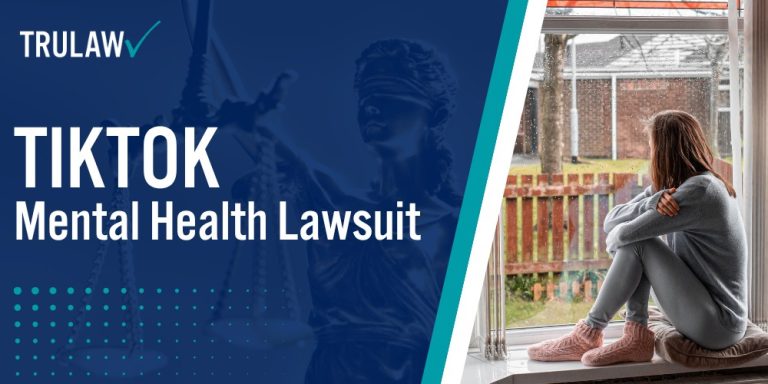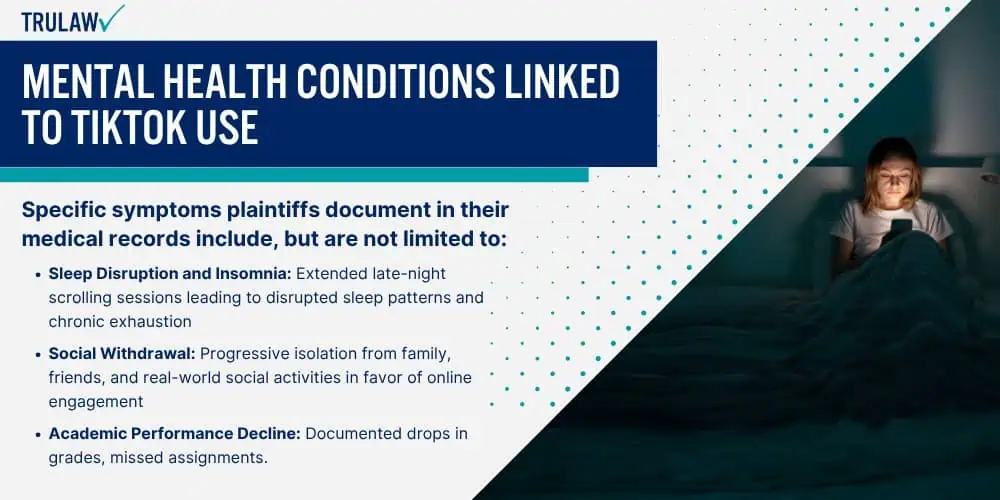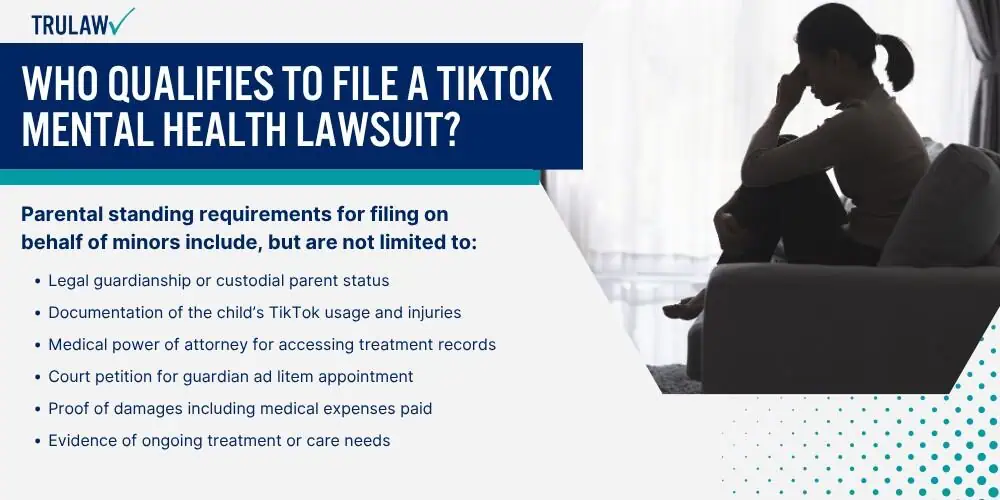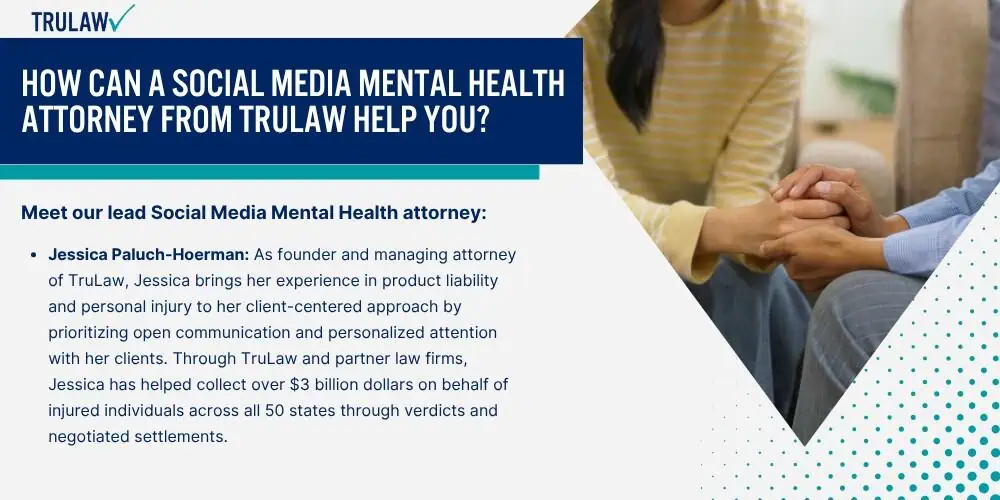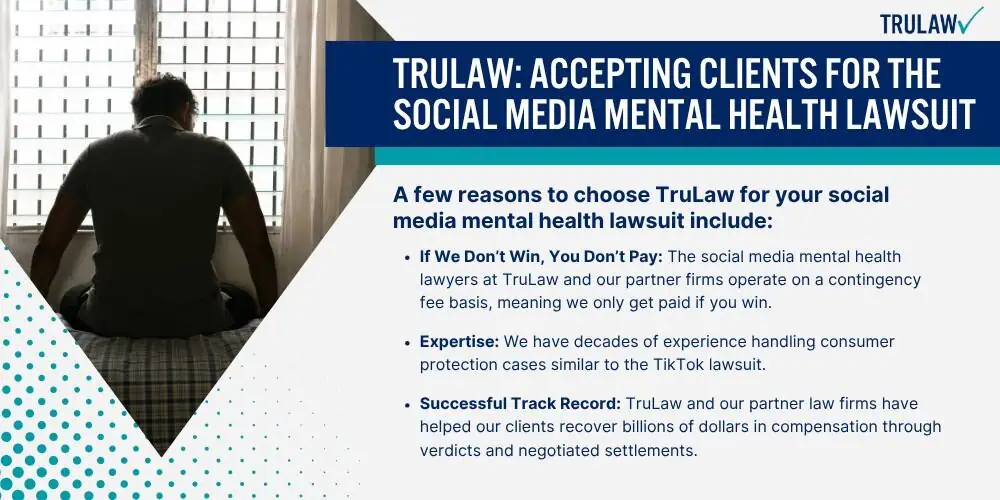The consolidation of over 620 cases in MDL 3047 before U.S. District Judge Yvonne Gonzalez Rogers represents individual families seeking damages for mental health injuries allegedly caused by TikTok’s platform design.
Separately, the New York attorney general, California attorney general, and attorneys general from 12 other states (plus the District of Columbia) filed coordinated enforcement actions on October 8th, 2024, seeking injunctive relief and civil penalties under state consumer protection laws.
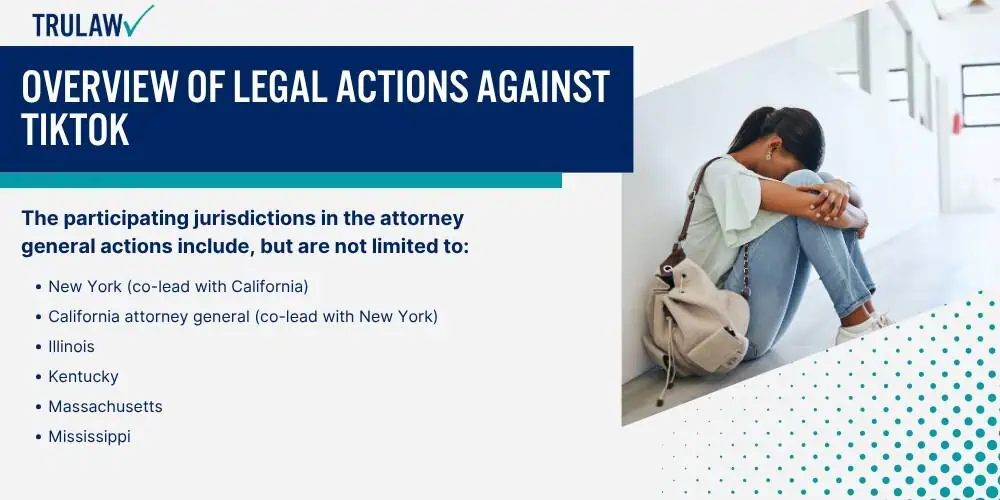
The participating jurisdictions in the attorney general actions include, but are not limited to:
- New York (co-lead with California)
- California attorney general (co-lead with New York)
- Illinois
- Kentucky
- Louisiana
- Massachusetts
- Mississippi
- New Jersey
- North Carolina
- Oregon
- South Carolina
- Vermont
- Washington
- District of Columbia
These distinct legal tracks serve different purposes: individual harm lawsuits filed seek compensatory and punitive damages for specific injuries to minors, while state enforcement actions aim to force TikTok (and most social media apps) to change their platform design and pay civil penalties for alleged violations of consumer protection laws.
The bifurcated approach allows both immediate relief for harmed families and systemic changes to protect future users from social media harm.
TikTok’s Allegedly Harmful Design Features
TikTok’s platform incorporates specific features that create what internal documents describe as an “arms race for attention,” including the algorithmically driven “For You Page” that serves an endless stream of personalized content designed for maximizing young users’ time on the platform.
These features work in concert with child directed subject matter—infinite scroll prevents natural stopping points, intermittent variable rewards trigger dopamine responses similar to slot machines, and push notifications create fear of missing out (FOMO) that drives compulsive checking behaviors, as documented in the FTC’s enforcement action against TikTok.
The specific design features cited in lawsuits as creating addictive usage patterns include:
- “For You Page” (FYP) Algorithm: Curates hyper-personalized content feeds based on user behavior and engagement patterns
- Infinite Scroll with Auto-Play: Provides endless video content that automatically plays without user intervention and cannot be disabled
- Variable Reward System: Delivers unpredictable patterns of likes, comments, and views designed to trigger dopamine responses
- 24/7 Push Notifications: Sends constant alerts and updates throughout the day and night to draw users back to the platform
- Appearance-Altering Beauty Filters: Offers real-time facial and body modifications that promote unrealistic beauty standards
- Time-Limited Content Features: Creates urgency through disappearing “stories” and live streams that expire after viewing periods
- Social Validation Metrics: Prominently displays user engagement numbers including likes, shares, and follower counts to encourage comparison
- Harm-Blind Content Amplification: Promotes engaging content through algorithmic boosting regardless of potential psychological or safety risks
Internal TikTok documents unsealed in Kentucky litigation reveal company executives were aware these features could deprive children of basic necessities, with one executive stating: “I think we need to be cognizant of what it might mean for other opportunities…I literally mean sleep, and eating, and moving around the room, and looking at someone in the eyes.”
Despite this awareness, the company prioritized engagement metrics and ad revenue (from selling targeted ads) over user wellbeing.
Recent Supreme Court Decision and Its Impact
The January 2025 Supreme Court ruling on the potential TikTok ban addressed national security concerns related to Chinese ownership through TikTok’s parent company ByteDance, not the mental health problems at the core of the ongoing litigation.
Clarifications about why the ban ruling doesn’t affect mental health litigation include:
- Supreme Court’s Limited Scope: The Court addressed only foreign ownership concerns and national security data practices, not platform safety or user health issues
- Design-Based Legal Claims: Mental health lawsuits target specific platform features and social media algorithms rather than corporate ownership or management structure
- State Law Independence: Consumer protection claims filed under state statutes remain unaffected by federal decisions regarding foreign ownership
- Product Liability Framework: Individual injury cases proceed on theories that the platform constitutes a defective product causing harm to users
- Separate Federal Proceedings: The multidistrict litigation (MDL) consolidation continues its independent trajectory through the federal court system
The teen mental health lawsuits continue to advance through both the MDL process in federal court and individual state court proceedings, with discovery revealing increasingly damaging internal communications about TikTok’s knowledge of platform harms.
Recent court victories, including the denial of TikTok’s motion to dismiss in New York attorney general’s successful court ruling, demonstrate the strength of these cases moving forward.
If you or a loved one experienced mental health issues, eating disorders, or self-harm after excessive social media use before age 21, you may be eligible to seek compensation.
Contact TruLaw using the chat on this page to receive an instant case evaluation and determine whether you qualify to join others in filing a TikTok mental health lawsuit today.
